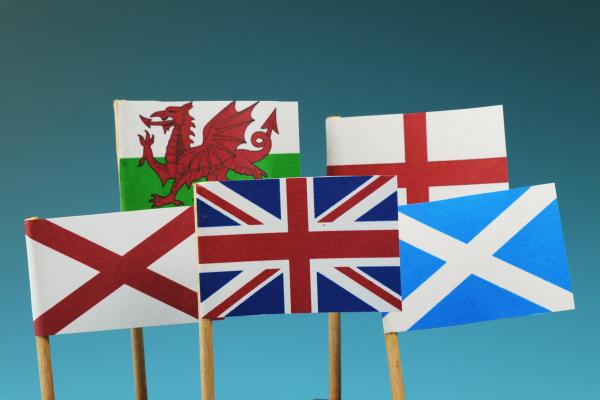Introduction to powers
Is it within powers?
It is necessary to consider the question of powers whenever a public body or institution does something. Whether it is Senedd Cymru passing an Act or a local planning authority granting planning permission, the institution or body must have the power to do it. Without the power the action of the institution or body would be invalid and therefore subject to challenge.
When considering whether Senedd Cymru can pass legislation on a particular matter, we ask whether the matter is within its legislative competence. This is just another way of asking whether Senedd Cymru has power to pass a law in relation to that matter. If an Act of Senedd Cymru is not within Senedd Cymru's legislative competence, the resulting law is not a valid law. To obtain more information about legislative competence visit devolved areas.
Similarly if Senedd Cymru confers power by an Act of Senedd Cymru on the Welsh Ministers or a public body, the actions of the Welsh Ministers or that public body are limited by the terms of the power granted.
As well as involving the sharing of legislative power, the devolution process has also led to the transfer of a great many executive powers (in other words powers conferred by Parliament on government) to Wales.
There are a number of sources of power within the United Kingdom. These are outlined below.
Statutory powers
For practical purposes, this is the largest and most important source of powers. The vast machinery of government and public administration relies in large part on the use of statutory powers. Statutory powers are conferred by Acts of (UK) Parliament or Acts of Senedd Cymru or previous National Assembly for Wales Acts or Measures, and in some circumstances by subordinate legislation. The UK Parliament and Senedd Cymru also routinely impose statutory duties on public bodies. The difference between the two, put simply, is that a power enables someone to do something, whereas a duty requires them to do something.
In Wales, the backdrop of devolution means that the route by which power is derived may be different compared to England:
- Many statutory powers are still conferred directly on Welsh public bodies by Act of the UK Parliament. This is the case for the areas of law which have not been devolved to Wales. However, even in areas which are now devolved, there remain powers which derive from pre-existing Acts of Parliament or from post-devolution Acts of Parliament passed with the (then) National Assembly’s consent. (See UK Parliament and Government in Wales for information about how Parliament may still legislate on devolved matters, and the use of legislative consent motions.)
- A growing number of statutory powers flow from Acts of Senedd Cymru and previous Assembly Acts and Measures, all of which have the same legal status as Acts of Parliament (provided they are within legislative competence of course).
- Other powers flow from subordinate legislation made under either an Act of Parliament or under Acts of Senedd Cymru, Assembly Acts or Assembly Measures. Some of these powers were formerly exercised by the Secretary of State, but have since been transferred to the Welsh Ministers as part of the devolution process. (See 'Executive' devolution (1998-2007) for more information on how executive powers have been transferred to Wales using transfer of functions orders.)
Power of the Crown
In relation to legal matters, 'Crown' is a reference to the ruling Monarch in that person's capacity as the sovereign, which holds supreme authority. Under common law, the Crown has power to do all the things that a natural person can do. For example, the power to enter into contracts, to employ persons and to buy and sell property. These powers are generally exercised by Ministers on behalf of the Crown. However, Ministers are subject to restrictions in the way they exercise those powers. They are also required to exercise the powers in accordance with the rules of administrative law, and if they fail to observe those rules their actions may be susceptible to judicial review by the courts. Visit the rules of administrative law page for more information.
There is also a source of power known as the Royal Prerogative. The Royal Prerogative is a set of powers which are held by the Crown (i.e. the Monarch) and by nobody else. These powers have been greatly reduced over the years, as a result of being restricted by statute or by judicial decisions. The sources of Royal Prerogative power which remain are relatively restricted, and include matters such as the power to declare war, the power to summon and dissolve Parliament and the power to give Royal Assent to Acts of Parliament and Acts of Senedd Cymru.
UK and Scottish Ministers may exercise Royal Prerogative powers on behalf of the Crown but under current constitutional arrangements the Welsh Ministers cannot. However, His Majesty seeks advice from the First Minister regarding the exercise of Royal Prerogative powers in relation to Wales.
A very broad power was however conferred upon the Welsh Ministers under section 60 of the Government of Wales Act 2006 to do anything they consider appropriate to promote or improve the economic, social or environmental well-being of Wales.
Since the passing of the Wales Act 2017, the Welsh Ministers are also able to exercise executive ministerial functions by virtue of the transfer of functions under section 58A of the Government of Wales Act 2006 (as amended by the Wales Act 2017). These functions are sometimes referred to as ‘common law type’ functions because they allow the Welsh Ministers to do things that a natural person can do such as enter into a contract, acquire land and incur expenditure. The exercise of these functions must however be within devolved competence, in other words each function (or the exercise of the function in a particular way) must be capable of being conferred upon the Welsh Ministers by legislation passed by Senedd Cymru.
Corporate powers
Many public bodies are corporate entities. Most public bodies are statutory corporations, that is corporations established by an Act of Parliament or Senedd Cymru. A statutory corporation only has the powers expressly conferred upon it by the Act, including anything reasonably incidental to those powers.
Some public bodies are incorporated by Royal Charter (an example of an exercise of the Royal Prerogative). The extent of the powers of a body established by Royal Charter are set out in the charter itself. The National Library of Wales is an example of a body established by Royal Charter.
Where a public body of this nature has power to create a subsidiary corporation (e.g. a company limited by guarantee tasked with specific goals) the subsidiary is also limited by the powers conferred upon its parent.



